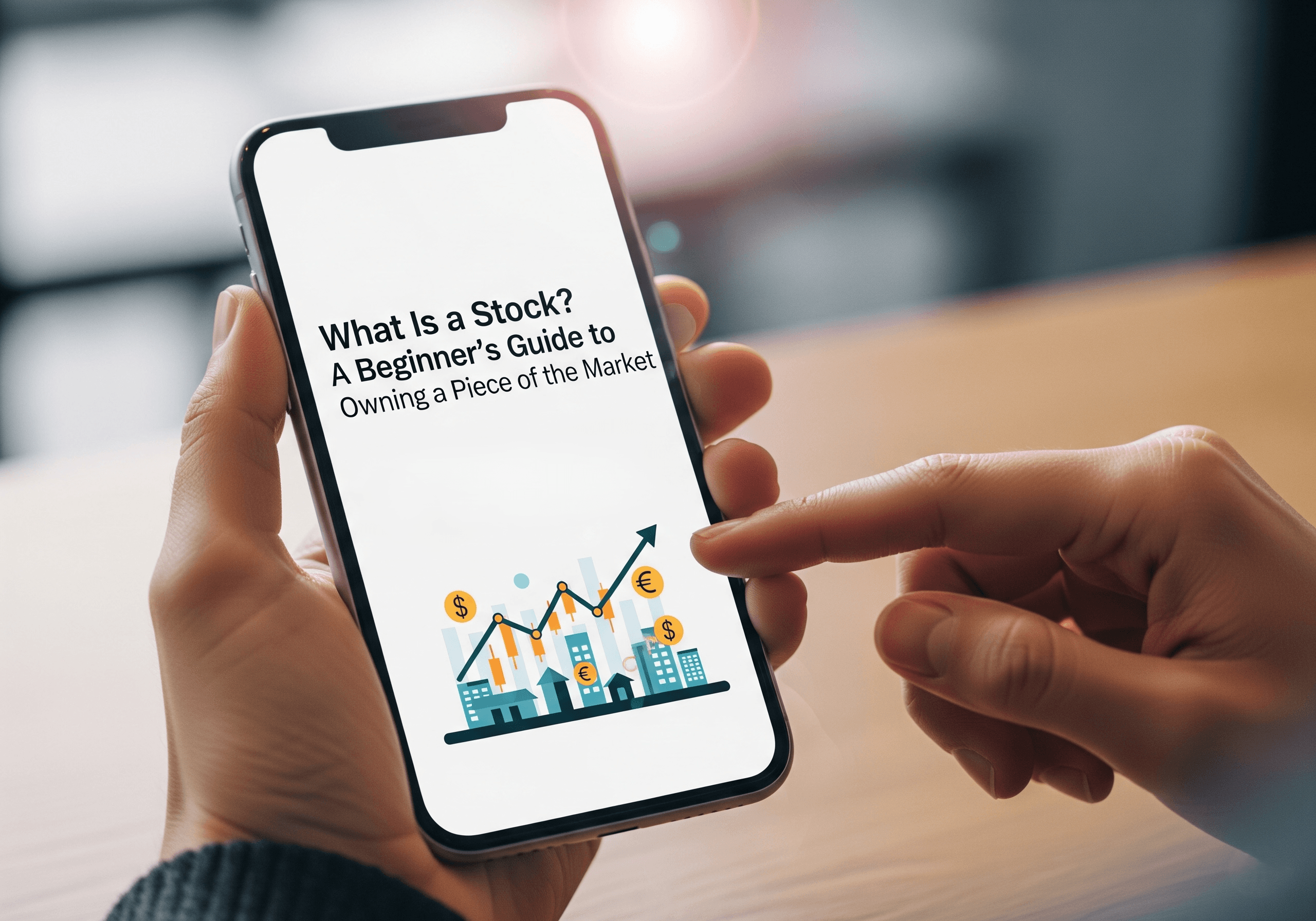
Table of Contents
You’ve probably heard the phrase “buying stock” tossed around in conversations. But what does it actually mean to own stock, and why does it matter?
Let’s break it down simply.
A Stock Is Ownership. Period.
A stock represents ownership in a company. When you buy a share of stock, you’re buying a small piece of that business. You're not just betting on its success; you’re literally part of it.
If the company does well, your slice grows in value. If it struggles, so does your slice. It’s direct exposure to the ups and downs of a real business.
Think of it like this:
- You’re not buying lottery tickets.
- You’re becoming a shareholder.
- You have rights (some voting, some financial).
Why Companies Offer Stock
Companies sell stock to raise money. That’s called going public.
Instead of taking out a loan, they let investors buy pieces of the business in exchange for cash. That cash helps them:
- Expand operations
- Hire teams
- Launch products
- Pay off debt
In return, you get a piece of the action—and the chance to grow your investment if they perform.
Common Terms You’ll See
Here are a few basic terms beginner investors should know:
- Share: One unit of ownership in a company.
- Ticker Symbol: Short code used to represent a stock (e.g., TSLA for Tesla).
- Dividend: A portion of the company’s profit paid to shareholders.
- Market Cap: Total value of all shares (small cap, mid cap, large cap).
- Stock Exchange: Where stocks are bought/sold (e.g., NASDAQ or NYSE).
You don’t need to memorize everything. Just get familiar so you don’t feel lost when looking at stock listings or charts.
How Stocks Make You Money
There are two main ways:
- Capital Gains: You buy low, sell high. That’s the classic approach. If a company grows and the market values its future more, your shares go up in price.
- Dividends: Some companies share profits with investors. You’ll receive cash payouts (often quarterly) just for holding the stock.
Not every company pays dividends—but those that do can offer steady passive income.
Why Stocks Move in Price
Stock prices move based on:
- Company performance (earnings reports, growth)
- Market trends and global events
- Investor sentiment and speculation
- Industry shifts and competition
If Apple launches a game-changing product, its stock might soar. If Tesla misses earnings expectations, it could drop. Prices reflect the collective mood of millions of traders and investors.
How to Buy Stocks
You need a brokerage account. It's basically your bank to the stock market.
Some beginner-friendly platforms include:
- Robinhood
- Fidelity
Once you sign up:
- Search for the stock ticker you want.
- Review its chart and info. Tradingview For Advanced Chart features
- Choose how much to invest.
- Click “buy.”
That’s it. You’re now a shareholder.
Don’t Just Buy, Understand
Before you invest, ask yourself:
- What does the company actually do?
- How do they make money?
- Do you believe in their future?
- Are they financially healthy?
This helps you invest with confidence—not emotion. Don’t chase hype. Own businesses you understand.
Common Beginner Mistakes
Let’s call these out so you can avoid them:
- Buying a stock just because it’s popular.
- Putting your life savings into one company.
- Checking your portfolio every hour.
- Ignoring fees and taxes.
- Selling too early out of panic.
Investing works best when you take time to understand the business—what it does, how it grows, and where it’s headed. Knowing a company’s future potential matters more than chasing short-term price swings.
Final Thoughts
A stock isn’t a lottery ticket; it’s ownership. When you invest in a company, you’re backing its mission, its products, and its people.
So next time someone says “I just bought stock in [company name],” know what that really means. They’re investing in the business. You can too—just make sure it’s a smart investment.
Legal Disclaimer
This article is for educational purposes only and does not constitute financial advice or a recommendation to buy or sell any specific securities. Always consult with a licensed financial advisor before making investment decisions. This post may include affiliate links. If you click and purchase, I may receive a small commission at no additional cost to you.

About Daniel M.
Founder of Nice Breakout
founder of Nice Breakout is a seasoned professional with over 5 years of dedicated experience navigating the intricacies of financial markets, particularly utilizing the Thinkorswim platform. His passion lies in empowering traders and investors by providing insightful analysis and cutting-edge tools.


